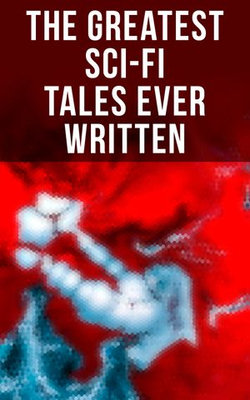'The Greatest Sci-Fi Tales Ever Written' spans a breathtaking array of foundational science fiction stories, each entwining speculative technology with rich humanistic themes. This anthology showcases the diversity in narrative structure and style, from the adventurous and the gothic to the philosophical and the romantic, capturing the early flourishes of the genre. The collection binds together seminal works that not only imagine worlds beyond the conventional but also reflect the contemporaneous anxieties and aspirations through fantastical storytelling, making it an essential compendium for readers and scholars alike. The authors represented in this anthology, including pioneers such as Mary Shelley, H.G. Wells, and Jules Verne, among others, bring a remarkable breadth of cultural and intellectual backgrounds. Collectively, they have laid the groundwork for modern science fiction, touching on themes from industrial revolution repercussions to the moral implications of futuristic inventions. Their works resonate with significant literary movements of their times, ranging from Romanticism to the dawn of Modernism, and collectively, they offer a panoramic view on the evolution of societal narratives via speculative fiction. For enthusiasts of both literary history and imaginative escapades, 'The Greatest Sci-Fi Tales Ever Written' offers a unique gateway. Readers are invited to traverse through a labyrinth of visionary realms and probe the philosophical queries posed by each author. Diving into this collection promises not only a broadened personal horizon but also deeper insights into how classic literature mirrors and molds societal prospects and fears. This anthology is an excellent resource for anyone wishing to explore the diversity of early science fiction and its profound impact on how we view the future.



Share This eBook: